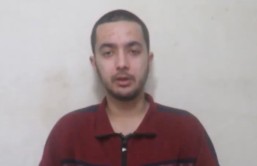The Ebola virus appears to still remain a problem in Liberia, as a new case has been confirmed after the death of a 30-year-old woman, the World Health Organization (WHO) said Friday.
The confirmation follows almost three months after Liberia was declared free from Ebola transmissions after passing 42 days, which is twice the length of the virus's incubation period, without experiencing a new case. The incubation period is the time between catching Ebola and getting its symptoms.
The new case involves a woman who was taken to a hospital in the capital Monrovia on Thursday after falling ill. WHO and Liberia's health ministry said that she died before she arrived at the hospital.
The health ministry added that the woman's blood samples tested positive for Ebola and that an investigation is underway to find out how the virus was transmitted.
Tolbert Nyenswah, the head of Liberia's Ebola response, said that despite the country's hopes that it was free of Ebola, the new case emerged "given the tenacity of the Ebola virus."
Ebola spreads through direct contact with victims or corpses' bodily fluids, and officials determined that one of the most common ways that it was transmitted during the epidemic in West Africa was through traditional funerals, in which mourners touch the body of the deceased. Symptoms include high fever and fatigue, though the virus can cause severe hemorrhaging in its advanced stages.
The epidemic, which was the worst involving Ebola, led to more than 1,300 deaths over the past two years, with almost all of them occurring in Liberia, Guinea and Sierra Leone.
Despite WHO writing on Twitter Tuesday that Ebola isn't an international health emergency anymore, it added that flare-ups are still expected, though at a decreasing frequency. While Sierra Leone and Guinea have experienced some flare-ups lately, health officials said that they aren't linked to the original chain of transmission.
The organization also noted that Thursday's case is the third Ebola flare-up in Liberia since the original outbreak was declared in May of last year, with the latest flare-up beginning in November and ending in January.
Guinea has also seen eight Ebola cases and seven deaths from the virus since late February, with the latest case involving an 11-year-old girl that WHO noted is being treated in Nzerekore and is in stable condition.
The health ministry advised the citizens of Liberia to remain calm as the investigations into the new Ebola case continue, though WHO said that Liberia, as well as Guinea and Sierra Leone, should stay on high alert and ready to respond to flare-ups. WHO currently has close to 1,000 experienced staff in the region, where they will be tasked with improving health systems in the three countries and being prepared to help emergency response operations if needed.








